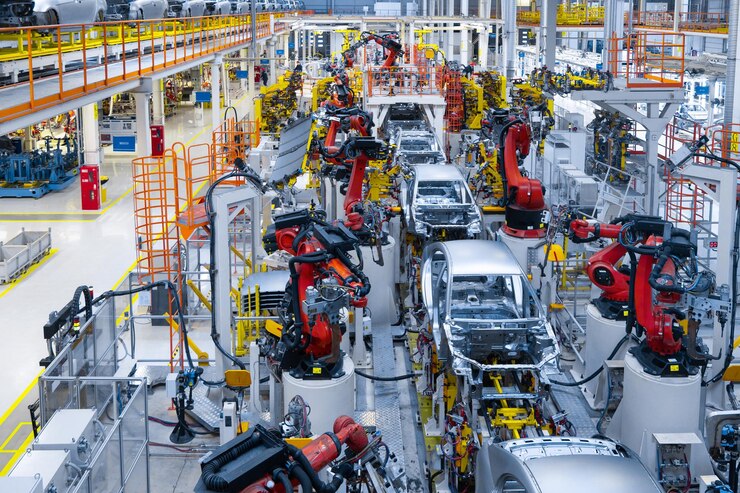British car production has fallen to its lowest level in over 40 years, reflecting deepening challenges within the automotive industry. A combination of factors, including a slump in domestic and international demand, as well as hurdles in the transition to electric vehicles (EVs), has hindered the country’s manufacturing output.
According to recent data, UK car production in 2023 reached its lowest point since 1984, with a significant 10.1% year-on-year decrease. This decline has been attributed to several factors, chief among them a reduction in consumer demand, supply chain disruptions, and the ongoing restructuring efforts as manufacturers move toward electric vehicle production.
Automakers are facing the dual pressures of adapting their existing infrastructure to accommodate EV production while managing an industry-wide shortage of essential components, such as microchips, which has stifled the pace of manufacturing. In addition, the shift to EVs has required significant investments in new technologies and plants, a transition that has been more challenging in the UK compared to other European countries that are also investing heavily in electric mobility.
The Society of Motor Manufacturers and Traders (SMMT) has expressed concern over the trend, warning that the UK automotive sector risks falling behind if it does not receive additional support to address these challenges. The industry’s current decline is especially troubling, as it undermines the UK’s position in global car manufacturing, with the country having been one of Europe’s largest producers for decades.
Despite efforts by manufacturers to increase EV production, the UK has struggled to match the scale of investment seen in countries like Germany and China, which are leading the way in electric mobility. While some UK automakers have announced plans to ramp up their electric vehicle production in the coming years, many industry leaders believe that more must be done to ensure a smooth transition and prevent further erosion of the industry’s workforce.
Government measures, such as incentives for greener vehicles and infrastructure support for EV production, could be key to revitalizing the sector. However, without stronger measures to mitigate the broader economic challenges and adapt to new consumer preferences, British car production could continue to struggle for the foreseeable future.
This decline in manufacturing output has broader implications, impacting employment within the sector and reducing the UK’s competitiveness in a fast-evolving global automotive market. As manufacturers and policymakers look ahead, the industry’s ability to adapt to the electric vehicle revolution will be pivotal to its recovery.
References:
- Society of Motor Manufacturers and Traders (SMMT)
- UK Department for Business, Energy & Industrial Strategy
- Automotive News UK



